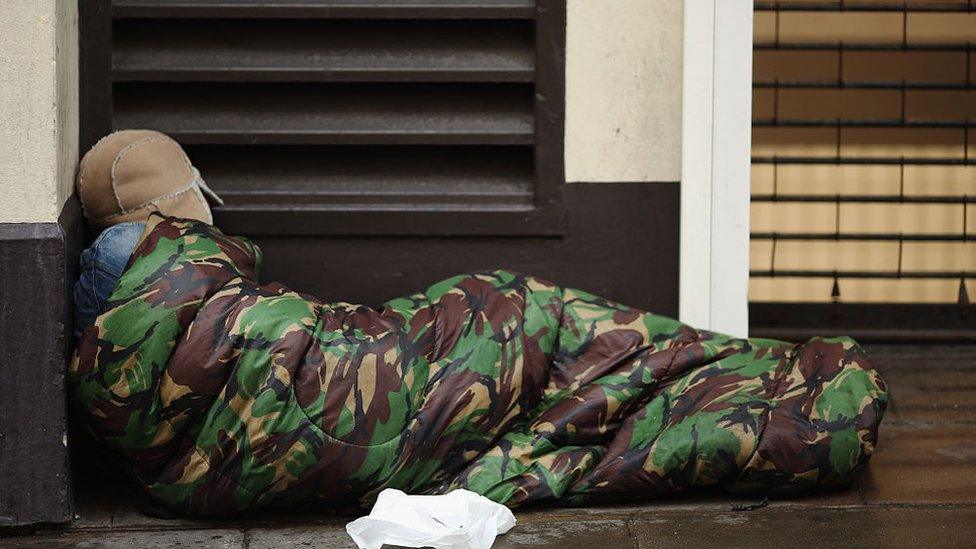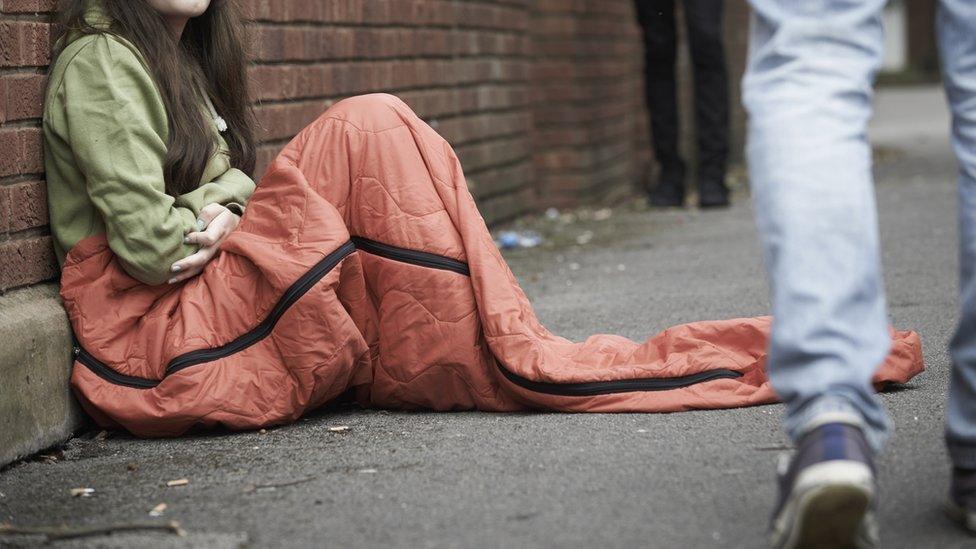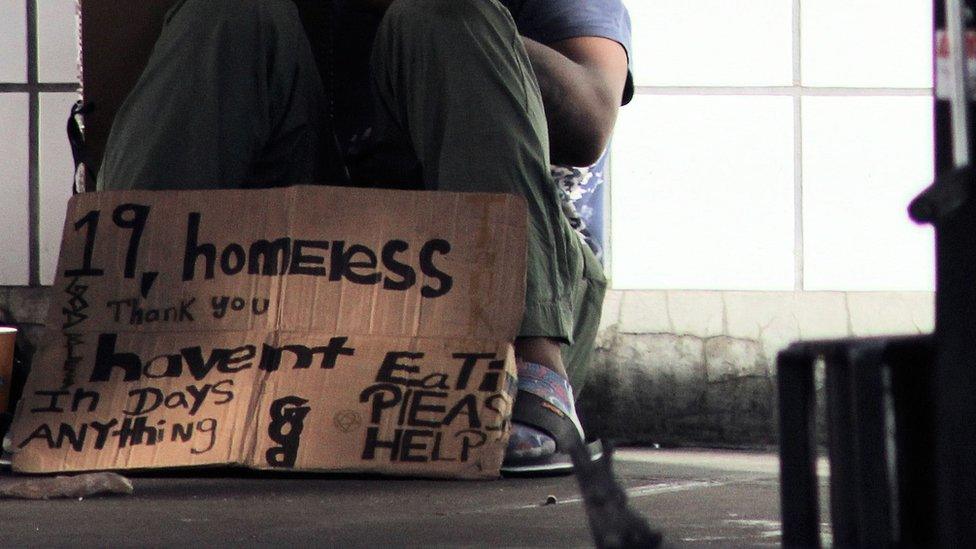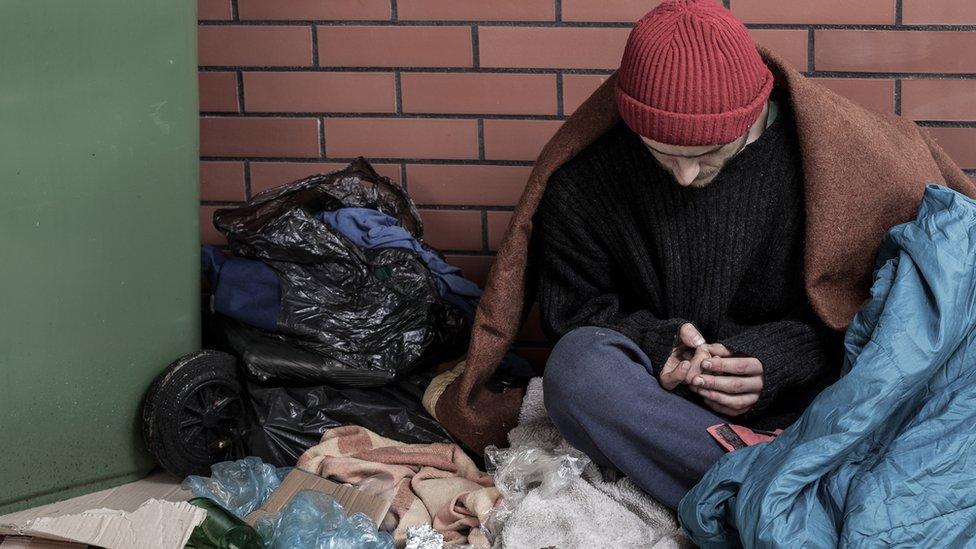Reducing street homelessness a 'matter of urgency'
- Published
- comments

A Welsh homeless charity has welcomed the findings of the report
Rough sleeping could be reduced by scrapping the way housing for those most at need is allocated, a report has said.
Despite many rough sleepers being considered vulnerable due to poor health or substance misuse, the current "priority need" criteria means they are still on the street.
An assembly committee said that should change "as a matter of urgency".
The Welsh Government said the housing minister intends to review legislation.
Those in "priority need" include pregnant women, people with dependent children, young people aged 16 and 17, people aged 18-20 to who have spent time in care or who are at risk of exploitation.
There were almost 350 people sleeping rough across Wales in 2017, according to official figures - an increase on the previous year - but experts say those figures are conservative.
The assembly's equality, local government and communities committee urged the Welsh Government to "immediately" strengthen guidance to councils to ensure rough sleepers are deemed to be in priority need.
It said that once rough sleepers are offered support as a matter of course, there will no longer be a need for the priority system.
However, before that can be scrapped, enough resources and support need to be in place to cope with the change.
"The number of people sleeping rough in Wales is growing and as a society this is something we simply shouldn't accept," said committee chairman John Griffiths.
Lindsay Cordery-Bruce chief executive of homeless charity The Wallich, said rough sleepers need the change
"The reasons behind people living on the streets are often complex and there is no one-size fits all solution.
"What our inquiry has found is that the criteria used to identify those who are in 'priority need' of accommodation is such that even the most vulnerable people within our communities are falling through the cracks.
"We want the Welsh Government to introduce a phased approach to abolishing priority need, which would start by ensuring that everyone sleeping rough is considered in priority need, and is entitled to support and housing."
The "priority need" system was changed in Scotland in 2012, so anyone anyone finding themselves "unintentionally homeless" were entitled to settled accommodation.
Although the change has led to some problems, with more homeless people housed in temporary accommodation, it has generally been considered a success.
Welsh homeless charity The Wallich said scrapping "priority need" over time was "exciting" and "achievable".
The committee also heard evidence from Prof Suzanne Fitzpatrick from the Institute for Social Policy, Housing, Environment and Real Estate at Heriot-Watt University in Edinburgh who favours abolishing priority need.
She acknowledged that in Scotland this had led to a trebling of the use of temporary accommodation, but suggested the preventative approach to homelessness adopted in Wales could help mitigate any significant increase in the use of temporary accommodation.
The Welsh Government said their "innovative housing legislation aims to reduce homelessness" with a stronger focus on prevention and helping everyone "at risk".
"The housing minister has made it clear she intends to review the legislation on priority need and how it works for rough sleepers and some vulnerable groups in Wales," said a spokesperson,
"We welcome the committee's report and will consider its recommendations and respond in due course."
Plaid Cymru committee member Bethan Sayed called for administration of Universal Credit to be devolved and welfare put in the control of the Welsh Government.
She said in that event Wales "would have the potential to protect some of our most vulnerable people from the worst policies imposed by the Conservative government in Westminster".
- Published9 January 2018

- Published10 August 2017

- Published11 February 2017
